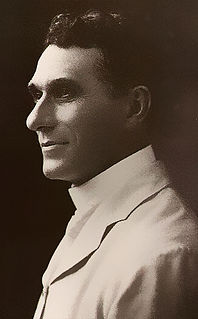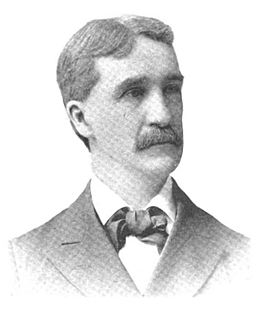A Quote by Euripides
The care of God for us is a great thing, if a man believe it at heart: it plucks the burden of sorrow from him.
Related Quotes
Easy to see that naught save sorrow could bring a man to such a view of things. And yet a sorrow for which there can be no help is no sorrow. It is some dark sister traveling in sorrow's clothing. Men do not turn from God so easily you see. Not so easily. Deep in each man is the knowledge that something knows of his existence. Something knows, and cannot be fled nor hid from. To imagine otherwise is to imagine the unspeakable. It was never that this man ceased to believe in God. No. It was rather that he came to believe terrible things of Him.
If a man has no worries about himself at all for the sake of love toward God and the working of good deeds, knowing that God is taking care of him, this is a true and wise hope. But if a man takes care of his own business and turns to God in prayer only when misfortunes come upon him which are beyond his power, and then he begins to hope in God, such a hope is vain and false. A true hope seeks only the Kingdom of God... the heart can have no peace until it obtains such a hope. This hope pacifies the heart and produces joy within it.
Repentance out of mere fear is really sorrow for the consequences of sin, sorrow over the danger of sin — it bends the will away from sin, but the heart still clings. But repentance out of conviction over mercy is really sorrow over sin, sorrow over the grievousness of sin — it melts the heart away from sin. It makes the sin itself disgusting to us, so it loses its attractive power over us. We say, ‘this disgusting thing is an affront to the one who died for me. I’m continuing to stab him with it!’
The thing that was forfeited in the garden was regained. God gave him [Adam] dominion over the works of His hand. God made him His understudy, His king to rule over everything that had life. Man was master, man lived in the realm of god. He lived on terms of equality with God. God was a faith God. All God had to do was to believe that the sun was, and the sun was. All God had to do was to believe that the planets would be, and they were. Man belonged to God's class of being - a faith man, And he lived in the creative realm of God
It has been well said that no man ever sank under the burden of the day. It is, when tomorrow's burden is added to the burden of today, that the weight is more than a man can bear. Never load yourselves so, my friends. If you find yourselves so loaded, at least remember this: it is your own doing, not God's. He begs you to leave the future to Him, and mind the present.
First of all, you ask me if the God of Christians forgives one who doesn't believe and doesn't seek the faith. Premise that - and it's the fundamental thing - the mercy of God has no limits if one turns to him with a sincere and contrite heart; the question for one who doesn't believe in God lies in obeying one's conscience.
A man who was merely a man and said the sort of things Jesus said would not be a great moral teacher. He would either be a lunatic - on a level with the man who says he is a poached egg - or else he would be the Devil of Hell. You must make your choice. Either this man was, and is, the Son of God; or else a madman or something worse. You can shut him up for a fool; you can spit at him and kill him as a demon; or you can fall at his feet and call him Lord and God. But let us not come with any patronizing nonsense about his being a great human teacher. He has not left that open to us.





































